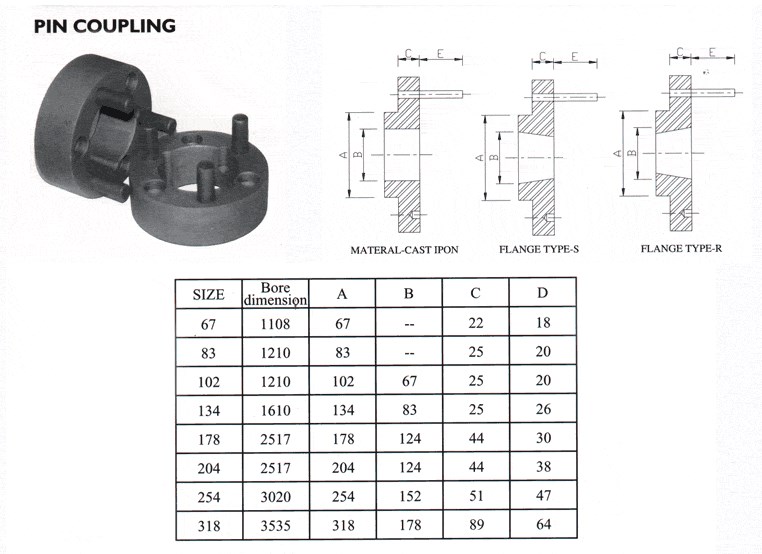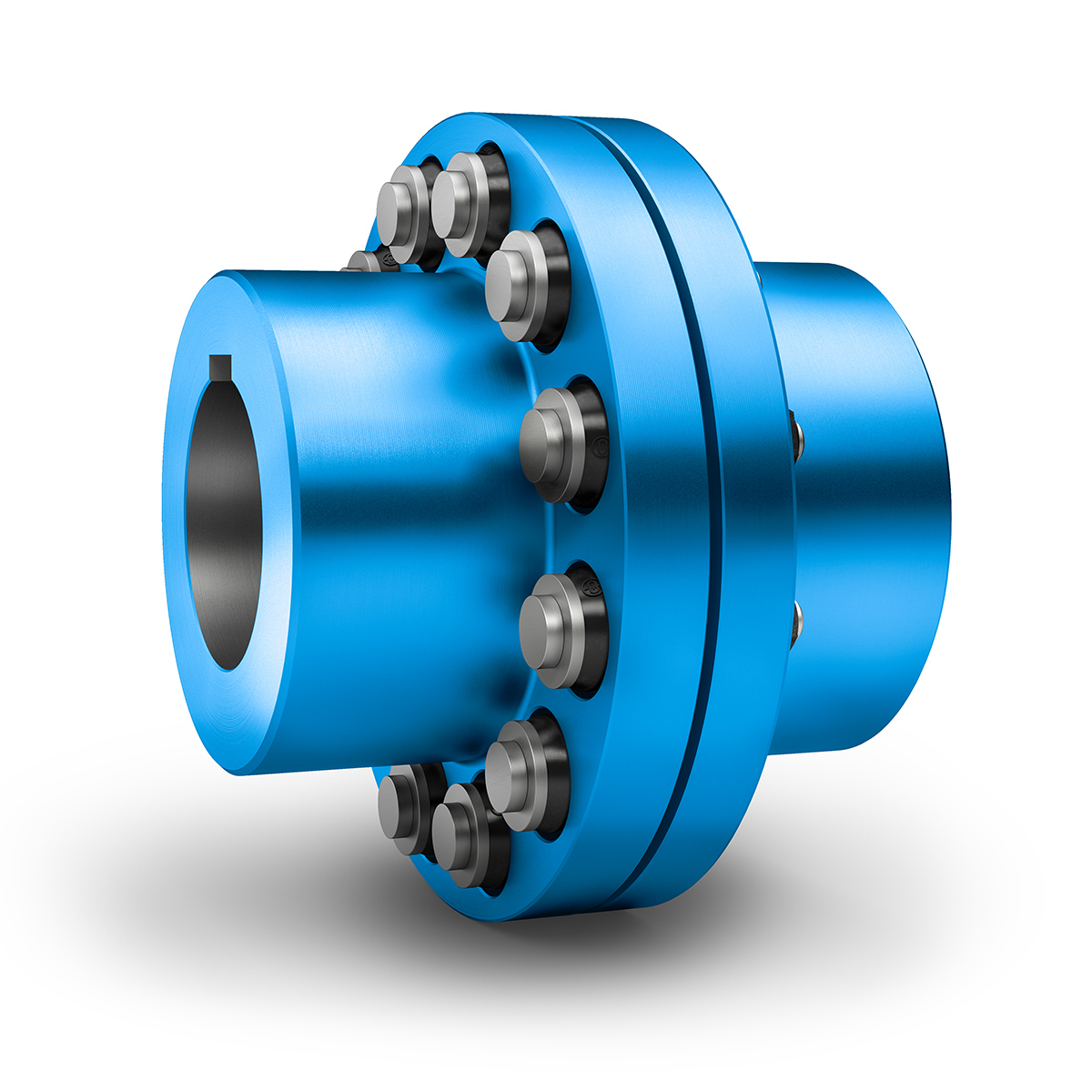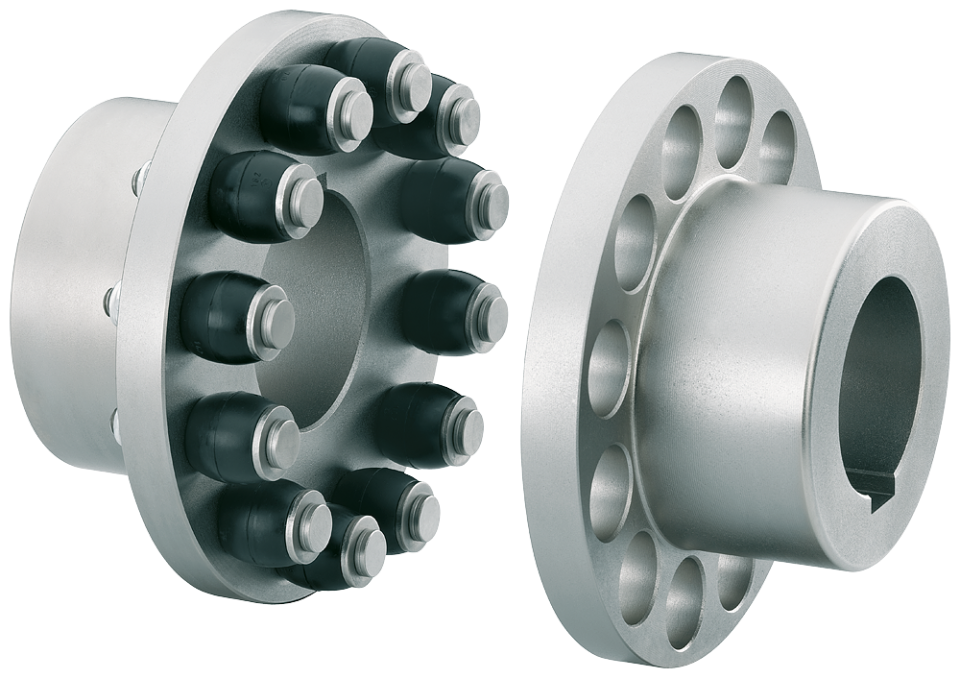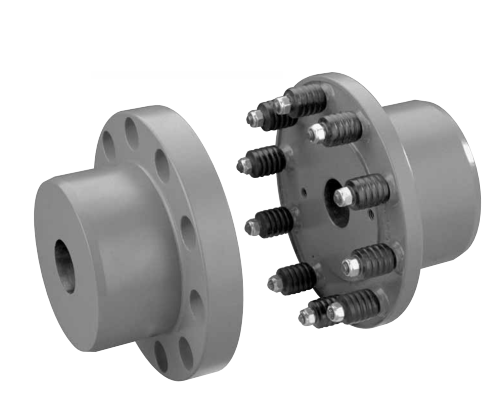Product Description
Shaft Couplings Gear Flexible Pipe Trailer Fire Galvanized Steel Fluid Jaw protected bush pin type
flange Coupling Fittings Manufacturer Industrial
Application of Shaft Couplings
Shaft couplings are mechanical components that connect 2 shafts together in order to transmit power. They are used in a wide variety of applications, including:
- Machine tools: Shaft couplings are used in machine tools such as lathes, milling machines, and drills to transmit power from the motor to the cutting tool.
- Pumps: Shaft couplings are used in pumps to transmit power from the motor to the pump impeller.
- Fans: Shaft couplings are used in fans to transmit power from the motor to the fan blades.
- Compressors: Shaft couplings are used in compressors to transmit power from the motor to the compressor impeller.
- Generators: Shaft couplings are used in generators to transmit power from the turbine to the generator stator.
- Wind turbines: Shaft couplings are used in wind turbines to transmit power from the rotor to the generator.
Shaft couplings are chosen for these applications because they are able to transmit power between 2 shafts that may not be perfectly aligned. They are also able to absorb shock and vibration, which can help to protect the equipment from damage.
There are many different types of shaft couplings available, each with its own advantages and disadvantages. The type of shaft coupling that is best for a particular application will depend on the specific requirements of the application.
Here are some of the most common types of shaft couplings:
- Rigid couplings: Rigid couplings are the simplest type of shaft coupling. They are made of a single piece of material, such as steel or cast iron. Rigid couplings are not able to absorb shock or vibration, and they are only suitable for applications where the shafts are perfectly aligned.
- Flexible couplings: Flexible couplings are able to absorb shock and vibration. They are made of multiple pieces of material, such as rubber, fabric, or springs. Flexible couplings are suitable for applications where the shafts may not be perfectly aligned.
- Hydraulic couplings: Hydraulic couplings use a fluid to transmit power between the shafts. They are able to absorb shock and vibration, and they are also able to compensate for misalignment between the shafts. Hydraulic couplings are more expensive than other types of shaft couplings, but they are often the best choice for applications where high levels of shock and vibration are present.
Shaft couplings are an important part of many machines and equipment. They help to transmit power between shafts, and they also help to protect the equipment from damage. There are many different types of shaft couplings available, each with its own advantages and disadvantages. The type of shaft coupling that is best for a particular application will depend on the specific requirements of the application.
/* January 22, 2571 19:08:37 */!function(){function s(e,r){var a,o={};try{e&&e.split(“,”).forEach(function(e,t){e&&(a=e.match(/(.*?):(.*)$/))&&1
| Standard Or Nonstandard: | Standard |
|---|---|
| Shaft Hole: | 8-24 |
| Torque: | >80N.M |
| Bore Diameter: | 19mm |
| Speed: | 4000r/M |
| Structure: | Flexible |
| Samples: |
US$ 9999/Piece
1 Piece(Min.Order) | |
|---|


Are There Any Safety Considerations When Using Pin Couplings in Rotating Machinery?
Yes, there are several safety considerations to keep in mind when using pin couplings in rotating machinery. These considerations are essential to ensure the safe and efficient operation of the equipment and to protect personnel working in the vicinity. Here are some key safety points to consider:
- Guarding: When installing pin couplings, it is crucial to provide adequate guarding around the coupling area. This helps prevent accidental contact with the rotating coupling components, such as pins and hubs, which could cause severe injuries.
- Maintenance and Inspection: Regular maintenance and inspection of the pin coupling are vital to identify any signs of wear, misalignment, or damage. Any worn or damaged components should be replaced immediately to prevent coupling failure, which could lead to sudden equipment shutdown or safety hazards.
- Proper Alignment: Ensuring precise alignment of the connected shafts is crucial to the safe operation of the pin coupling. Misalignment can lead to increased stresses and premature wear on the coupling components, resulting in potential failures.
- Torque and Speed Limits: Adhering to the manufacturer’s recommended torque and speed limits for the pin coupling is essential for its safe operation. Exceeding these limits can lead to overloading and failure of the coupling.
- Environmental Considerations: Take into account the operating environment when selecting a pin coupling. Extreme temperatures, corrosive atmospheres, or harsh conditions may require special materials or coatings to ensure the coupling’s integrity and prevent premature failure.
- Training and Awareness: Operators and maintenance personnel should receive proper training on the safe handling, installation, and maintenance of pin couplings. Awareness of potential hazards and safety protocols is crucial for the safe use of rotating machinery.
- Emergency Shutdown: Install emergency shutdown systems that can quickly stop the rotating machinery in case of any safety concerns or abnormal conditions.
- Compliance with Regulations: Ensure that the use of pin couplings complies with all relevant safety and industry regulations and standards.
By taking these safety considerations into account and implementing proper safety measures, the use of pin couplings in rotating machinery can be done safely and effectively, mitigating potential risks and ensuring a safe working environment for personnel.

Can Pin Couplings Be Used for Both Motor-to-Shaft and Shaft-to-Shaft Connections?
Yes, pin couplings can be used for both motor-to-shaft and shaft-to-shaft connections in various mechanical systems. The versatile design of pin couplings allows them to connect two shafts with aligned or misaligned centers, making them suitable for a wide range of applications.
Motor-to-Shaft Connections: In motor-driven systems, pin couplings are commonly used to connect the motor shaft to the driven shaft of the equipment. The motor can be an electric motor, combustion engine, or any other type of power source. The pin coupling efficiently transfers torque from the motor shaft to the equipment’s driven shaft, enabling power transmission and mechanical motion.
Shaft-to-Shaft Connections: Pin couplings are also well-suited for shaft-to-shaft connections, where two separate shafts need to be joined together. This could be the case when extending the length of a shaft or connecting two separate pieces of rotating equipment. The pin coupling provides a secure and flexible connection between the two shafts, allowing torque to be transmitted between them while accommodating misalignment.
It is essential to consider the specific requirements of the application when selecting a pin coupling. Factors such as the amount of misalignment, torque capacity, operating conditions, and space constraints should be taken into account to ensure the coupling can effectively and reliably connect the motor and shafts.
Overall, the versatility and performance of pin couplings make them a popular choice for both motor-to-shaft and shaft-to-shaft connections in various industrial and mechanical systems.

Can Pin Couplings Handle Misalignment Between Shafts?
Yes, pin couplings are designed to accommodate a certain degree of misalignment between shafts in rotating machinery. They are considered flexible couplings, which means they can provide some degree of angular, parallel, and axial misalignment capability.
Pin couplings typically consist of two hubs, each connected to a shaft, and a central sleeve with pins that transmit torque between the hubs. The pins allow for a limited range of movement, which helps to compensate for slight misalignments between the shafts.
The angular misalignment capacity of a pin coupling is achieved through the bending of the pins. When the shafts are misaligned at an angle, the pins on one side of the coupling experience bending while those on the opposite side are in tension. The pins are designed to withstand these bending and tension forces within their elastic limits, ensuring proper functioning and longevity of the coupling.
Similarly, the pins can accommodate parallel misalignment by sliding within the pin holes of the coupling’s central sleeve. This sliding action allows the hubs to move slightly relative to each other, compensating for any offset between the shafts.
However, it is essential to note that pin couplings have limitations in terms of the amount of misalignment they can handle. Excessive misalignment beyond their specified limits can lead to increased wear on the pins and other coupling components, reducing the coupling’s effectiveness and potentially causing premature failure.
While pin couplings are suitable for applications with moderate misalignment requirements, they may not be the best choice for applications with significant misalignment or where precise alignment is critical. In such cases, more flexible couplings like gear or elastomeric couplings may be more appropriate.
Overall, when considering the use of pin couplings, it is essential to carefully evaluate the specific misalignment requirements of the application and select a coupling that can adequately accommodate those misalignments while ensuring reliable and efficient power transmission.


editor by CX 2024-03-26
by
Tags:
Leave a Reply